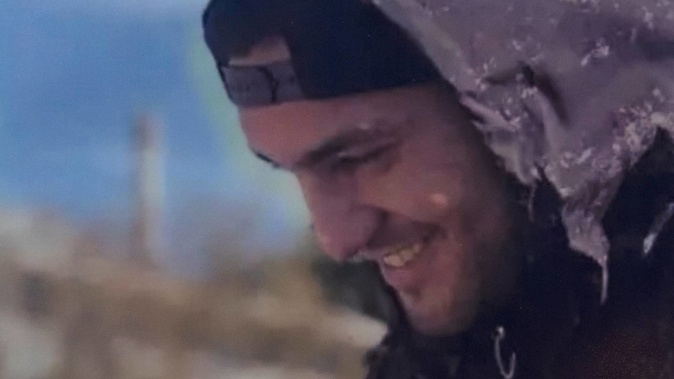
The fatal shooting of Kaoss Price by a police officer was “legally justified” and no charges will be laid after an investigation that took 16 months to complete.
The whānau of Price say they are “devastated” and that police have not provided enough information to support that finding.
In April last year, Price was in a two-tone Volkswagen travelling between New Plymouth and Waitara on State Highway 3 when a friend whose car he was following was pulled up by police.
According to police at the time, Price drove past the two vehicles, pulled over to the side of the road then did a U-turn before driving back and ramming his vehicle into the police car. He was shot and killed while trying to get into a car stopped by the unfolding drama.
Price, 22, was a father of three children and on the night of his death had not long been released from prison. He was unarmed and no weapons were recovered at the scene of his death.
In the wake of the shooting, police said there were concerns at Price’s attempts to take other vehicles as he fled and the risk he would pose if he managed to take one.
Detective Superintendent Uraia Vakaruru said the police’s critical incident investigation found “the force used by officers was legally justified and there is no criminal liability for the actions taken by officers that night”.
“The investigation has taken some time, and we would like to acknowledge the patience of all involved as the investigation progressed.”
There would be no further comment because there was an ongoing Independent Police Conduct Authority investigation and a coronial inquiry yet to take place, Vakaruru said.
Lawyers acting for Price’s whānau, Christopher Stevenson and Julia Spelman, said: “Police have not provided adequate information to support the decision not to prosecute in respect of their fatal shooting.”
“Kaoss Price’s whānau is devastated that police say their killing of Kaoss was justified. They remain convinced this much-loved son, sibling, and father did not need to be killed,” they said in a statement.
/cloudfront-ap-southeast-2.images.arcpublishing.com/nzme/22W3UEC6LY4VDITKDUGJCG3UXI.jpg)
Kaoss Price's mother, Jules Hana, at her home in Bell Block, New Plymouth. Photo / Mike Scott
“Given the alarming rate of fatal police shootings, particularly of young Māori men, it is critical that more information is provided so that what happened can be properly understood.”
The lawyers said the “excessive delay in coming to this decision” and the lack of supporting information was “agonising for whānau”. “They are exploring all of their legal options.”
At the time of the shooting, police were looking for Price and were aware of a driving history which included an incident in November 2020. In that instance, Price evaded police after officers abandoned pursuit when the fugitive raced through a pedestrian crossing and almost hit schoolchildren.
Later that day, Price crashed into two vehicles, one of which had young children inside. Police found 2.5 grams of methamphetamine inside his car.
Price was called a “one-man crime wave” during one court hearing addressing charges including burglary, escaping custody, police pursuits and thefts. One charge on which he pleaded guilty was robbery with a firearm.
The Herald’s inquiries into the shooting saw Price’s whānau raising questions about the initial police version of events.
The Herald obtained photographs of what appeared to be bullet holes in the side of the Volkswagen. Eyewitnesses spoke of Price sprinting down the road away from a pursuing police officer and his police dog.
Those who saw Price’s body after his death identified dog bites to one arm and bullet wounds to his torso.
Questions included why Price was shot if a police dog had a grip on his arm.
Kaoss’ father, Leigh Price, 40, appeared in the New Plymouth District Court in March on assault and cannabis-related charges. He was sentenced to 10 months home detention after a report from a justice worker was presented to the court.
/cloudfront-ap-southeast-2.images.arcpublishing.com/nzme/6OTROSU4QK2A5FSVYEUY5CICQU.jpg)
In New Plymouth, with the ashes of Kaoss Price, are his father, Leigh Price, with partner Stevie Apiata and Kaoss' siblings Chelsea Price, 14, and Saint Justice Price, 3. Photo / Mike Scott
In the report, Price had told the worker the death of his son had changed his life.
“It made me think about life and [how] the path that I was on was not the right one. Having the right mindset to do the right thing motivates me to be a better person.”
He also said: “I have forgiven them.” When asked who, he responded: “The police.”
Of those shot and killed by police, young Māori men make up 34 per cent, even though they make up just 3 per cent of the population.
At the time Price was shot, research had just been published showing New Zealand police were shooting more people while officers in other countries were shooting fewer people.
The research paper showed there were 0.36 shootings per million people from 2001 to 2010, growing to 0.783 in 2011-2020. In England and Wales, the rate per million dropped from 0.08 to 0.074.
Take your Radio, Podcasts and Music with you









